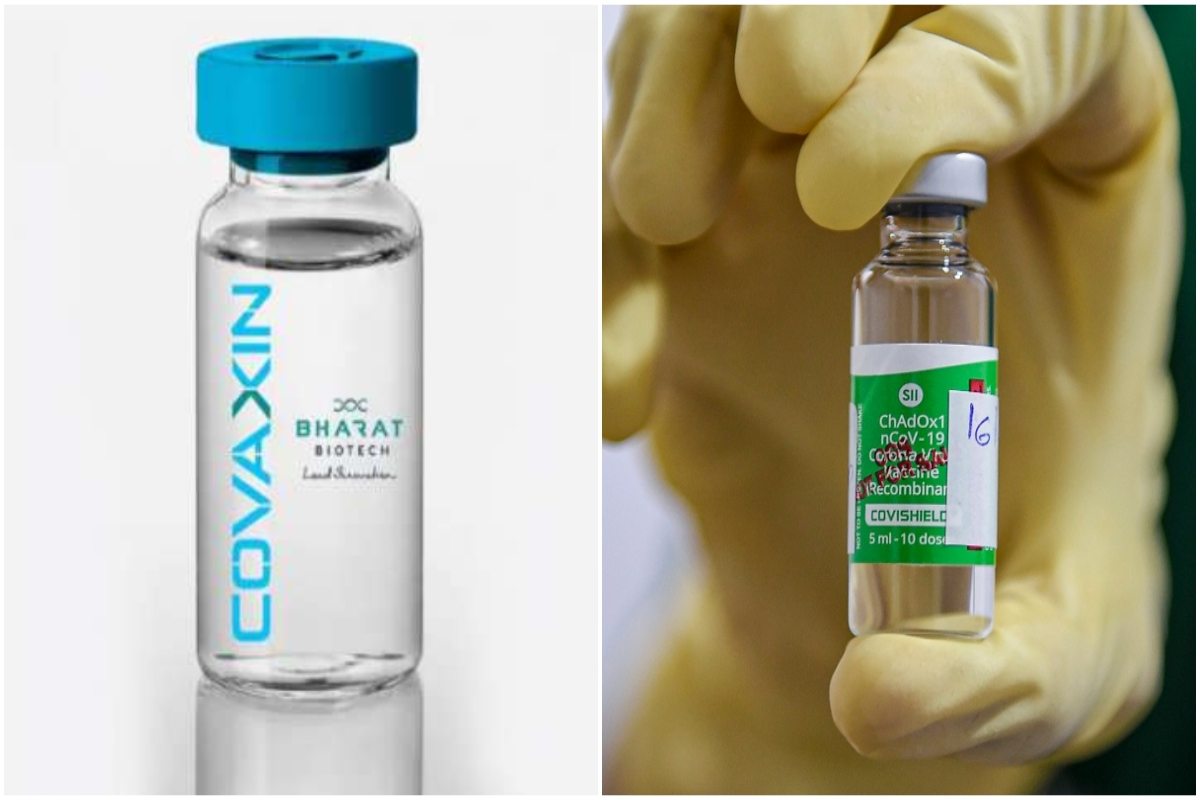Table of Contents
Difference Between Covaxin and Covishield
Covaxin and Covishield are both COVID-19 vaccines that have been authorized for emergency use in India. While both vaccines work to protect against COVID-19, there are some differences between them:
- Manufacturer: Covaxin is developed and manufactured by the Indian company Bharat Biotech. While Covishield is settled by AstraZeneca and the College of Oxford, and manufactured by the Serum Institute of India.
- Vaccine Type: Covaxin is an inactivated vaccine, which means it uses a killed virus to stimulate an immune response. Covishield, on the other hand, is a viral vector vaccine. Which uses a weakened version of a virus that causes the mutual cold in chimpanzees. To carry genetic material that stimulates an immune response.
- Dosage Schedule: Covaxin is administered in two doses, given 28 days apart. Covishield is also administered in two doses, but the second dose is given 12 weeks after the first.
- Efficacy: According to clinical trial data, Covaxin has shown an efficacy of 81% in preventing COVID-19. Covishield has shown an efficacy of around 70%, but this can increase to up to 90% with a longer dosing interval between the first and second dose.
- Storage and Handling: Covaxin can be stored at 2-8°C, which is the standard refrigerator temperature, while Covishield can be stored at 2-8°C as well but can also be stored at temperatures of up to -20°C for up to six months.
Overall, both Covaxin and Covishield are effective in preventing COVID-19, but there are some differences in their manufacturer, vaccine type, dosage schedule, efficacy, and storage and handling requirements. Individuals should consult with their healthcare provider or follow guidance from public health authorities regarding which vaccine is recommended for them.
Summing up the differences between Covaxin and Covishield
To sum up, Covaxin and Covishield are two COVID-19 vaccines that have been authorized for emergency use in India. The main differences between the two vaccines include:
- Manufacturer: Covaxin is manufactured by Bharat Biotech, while Covishield is manufactured by the Serum Institute of India, in collaboration with AstraZeneca and the University of Oxford.
- Vaccine Type: Covaxin is an inactivated vaccine, while Covishield is a viral vector vaccine.
- Dosage Schedule: Covaxin requires two doses, given 28 days apart, while Covishield requires two doses, but the second dose is given 12 weeks after the first.
- Efficacy: According to clinical trial data, Covaxin has shown an efficacy of 81% in preventing COVID-19, while Covishield has shown an efficacy of around 70%, which can increase up to 90% with a longer dosing intermission between the first and second dose.
- Storage and Handling: Covaxin can be stored at 2-8°C, while Covishield can be stored at 2-8°C as well, but can also be stored at temperatures of up to -20°C for up to six months.
Overall, both vaccines have been found to be effective in preventing COVID-19, but there are some differences in their manufacturer, vaccine type, dosage schedule, efficacy, and storage and handling requirements that individuals should be aware of. It is recommended to consult with a healthcare provider or follow guidance from public health authorities to determine which vaccine is recommended for each individual.
The Latest Updates on the COVID Vaccine
As of my knowledge cutoff date of September 2021, here are the latest updates on COVID vaccines:
- More vaccines have been authorized: Since the first vaccines were authorized for emergency use, several other COVID vaccines have been authorized by regulatory agencies in different countries, including vaccines from Moderna, Johnson & Johnson, and Novavax.
- Booster doses are being considered: Many countries are considering or have already started administering booster doses of COVID vaccines to individuals who have already received the full vaccine regimen. This is being done to provide additional protection against the Delta variant and to extend the protection provided by the initial vaccine doses.
- Vaccine hesitancy is still an issue: Despite the proven effectiveness and safety of COVID vaccines, vaccine hesitancy continues to be an issue in many parts of the world. Efforts are being made to address concerns and increase vaccine uptake, including through education campaigns and outreach efforts.
- Emerging variants may require new vaccines: The emergence of new COVID variants. Such as Delta and Lambda, has raised concerns about the efficacy of existing vaccines against these strains. Vaccine manufacturers are working to develop. New vaccines or modified versions of existing vaccines that can provide better protection against these variants.
It’s important to note that the COVID vaccine landscape is constantly evolving, and new updates may emerge over time. It’s important to consult with trusted sources such as public health authorities for. The latest information and guidance on COVID vaccines.
Conclusion
In conclusion, Covaxin and Covishield are two COVID-19 vaccines that have authorize for emergency use in India. While both vaccines are effective in preventing COVID-19, there are some differences between them. Covaxin is an inactivated vaccine developed by Bharat Biotech. While Covishield is a viral vector vaccine developed by AstraZeneca then the University of Oxford. And factory-made by the Serum Institute of India.
Covaxin requires two doses, given 28 days apart, while Covishield requires two doses. But the second dose is given 12 weeks after the first. According to clinical trial data, Covaxin has shown an efficacy of 81% in preventing COVID-19. While Covishield has shown an efficacy of around 70%. Which can increase up to 90% with a longer dosing interval between the first and second dose.
Additionally, Covaxin can be stored at 2-8°C. While Covishield can be stored at 2-8°C as well. But can also be stored at temperatures of up to -20°C for up to six months. Individuals should consult with their healthcare provider or follow guidance. From public health authorities to determine which vaccine is recommended for them.

